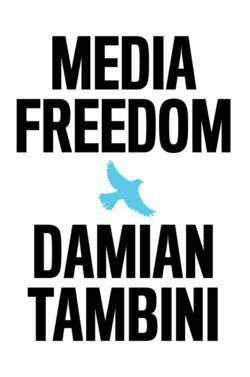Читать книгу Media Freedom - Damian Tambini - Страница 20
Global Standards or American Exceptionalism?
ОглавлениеThese paradoxes are not mere theoretical distractions; they lead to uncertainty and conflict in policy and law. They are also, and increasingly, issues that are resolved differently in international standards such as the UN’s International Covenant on Civil and Political Rights (ICCPR) and ECHR on the one hand, and the United States – which chooses to derogate from international standards of free expression – on the other. At precisely the time when liberal democracies need certainty and solidarity around international standards, a chasm is opening up.
In their magisterial distinction of ‘media systems’ into ideal types, Daniel Hallin and Paolo Mancini group the US and the UK together as liberal countries characterized by developed press and journalism and marketized liberal approaches to media freedom.90 It could be argued that such a worldview neglects the fact that the UK is subject to the jurisdiction of the ECtHR and the increasingly developed case law of the ECHR, and that the USA has registered a number of important derogations from the key international treaties, arguing that it has higher standards than the UN on media freedom. On key issues such as whether the government has a positive duty to protect privacy rights, including from media organizations, and on whether paternalist policy such as the ban on TV political and religious advertising is a restriction on free expression, the European approach permits a greater role for the state. These distinctions are echoed as the European countries contemplate the regulation of online media.
Increasingly, the choices and dilemmas are grouped into two opposing worldviews on media freedom. On the one hand you have the US First Amendment approach and on the other the approach outlined by the UN’s Human Rights Committee (UNHRC), for example in its General Comment number 34 on freedom of opinion and expression, and other regional human rights systems such as the case law of the ECtHR. It is the United States that is the outlier. This leads to a tantalizing prospect as the UK charts the complex path of extricating itself from the EU and so no longer being governed by the EU’s Charter of Rights and Freedoms (but remaining in the Council of Europe and so governed by the ECHR): how much of the post-war legacy of a mixed, socially responsible media system will remain, and how much of this can be updated for the new media?
